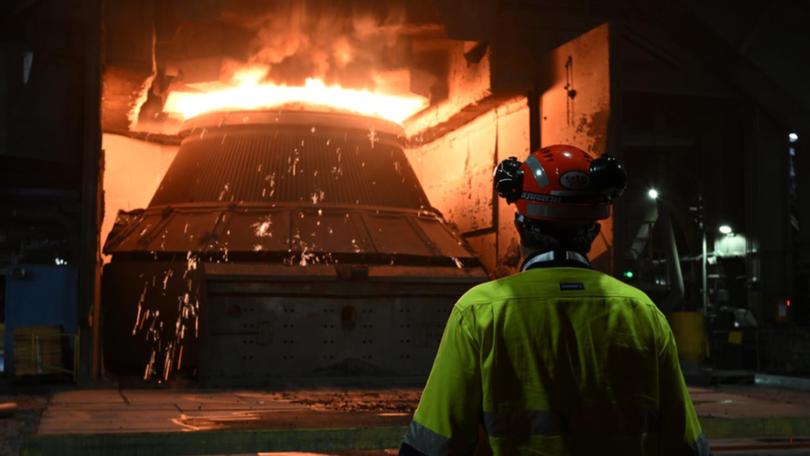What does China’s steel crisis, falling iron ore price and property developer crackdown mean for Australia?
The world’s largest steel market has a bad case of the wobbles, and it spells big trouble for Australia. Here’s everything you need to know.

The world’s largest steel industry has a bad case of the wobbles. And if there’s one thing you don’t want to wobble, it’s steel.
China Baowu Steel Group, the largest steel producer on Earth, sounded the alarm on an industry crisis at a half-year meeting last week, saying the nation’s steel producers are fighting to survive a “winter” that is “longer, colder and more difficult than expected”.
Baowu chair Hu Wangming warned the industry was facing a worse challenge than those seen in 2008 and 2015, which saw a mass consolidation of steel producers — including Baowu in 2016 — to keep the sector afloat.
Sign up to The Nightly's newsletters.
Get the first look at the digital newspaper, curated daily stories and breaking headlines delivered to your inbox.
By continuing you agree to our Terms and Privacy Policy.This new crisis is compounded by China’s enduring property slump that has created a glut of steel, due to the lack of demand for new buildings, and driven down steel prices which has led to profit losses at mills.
It has prompted the usually hungry Chinese steel industry to shrink its demand for iron ore, which will cost Australia more than $3 billion over the next four years, the Treasury has warned.
Since the start of 2024, the price of iron ore has dropped by 38 per cent, below the level the Treasury assumed it would be at this time. The iron ore price dropped 7.5 per cent in the first week of August, alone.
May’s Budget predicted the price would tumble to US$60/tonne by the end of March 2025, down from levels then above $US100/tonne.
Treasurer Jim Chalmers said the Government was following developments closely because of their potential impact on the Budget.
“Softness in the Chinese economy and the recent fall in iron ore prices are another reminder that we are not immune from volatility and uncertainty in the global economy,” he said.
Every $US10/tonne drop in iron ore prices equates to a $500 million loss in potential government revenue.
About 250 million tonnes of iron ore are shipped each year to the country out of the total 330mt Rio Tinto exports annually.
The vast majority of iron ore used in China’s steel mills is from Australia, with WA mining giant Rio Tinto supplying 250 million tonnes of ore to the country each year.
Rio Tinto has exported enough iron ore from the WA Pilbara region to China to make enough steel for about 45,000 Sydney Harbour Bridges.
If that demand for iron ore dried up, Australia would be in big strife.
Although Labor recorded two consecutive Budget surpluses, the $9.3 billion recorded for 2023-24 was based on high iron ore prices boosting company tax revenue.
A deficit of $28.3 billion was forecast for 2024-25, growing to $42.8 billion in 2025-26.
That deficit will likely only grow if company tax revenue from shipments of iron ore to China declines. Or unless there are severe cutbacks in government spending.
Adding to the anxiety over a looming steel crisis is the sharp decline in new construction projects China — where the stuff is a key component — down about 24 per cent in the first half of 2024, according to Commonwealth Bank.
New construction starts declined by 21 per cent in 2023 and 39 per cent in 2022.
The decline follows the liquidation of apartment building giant Evergrande, ordered by a Hong Kong court in January. According to a court ruling, Evergrandewas unable to produce a restructuring proposal for its $US328 billion in liabilities after a year and a half of hearings.
According to Evergrande’s 2022 annual report, the developer has more than 1200 projects in progress.
In 2020, Chinese President Xi Jinping’s government acted on the oversupply of apartment buildings that had created “ghost cities” of empty towers across China. The oversupply had seen property prices plummet by 4.9 per cent in the year to July, according to the Chinese National Bureau of Statistics.
The government’s new “three red lines” policy required developers to sell assets, even at a cheap discount, to avoid piling on more debt they could not service.
